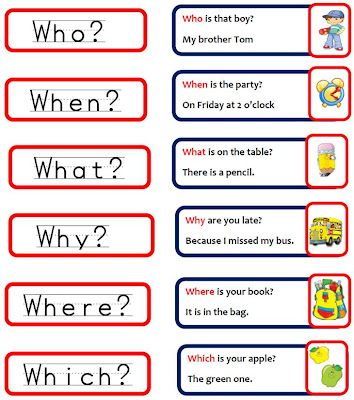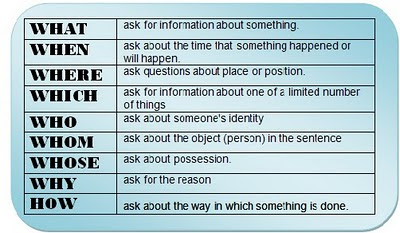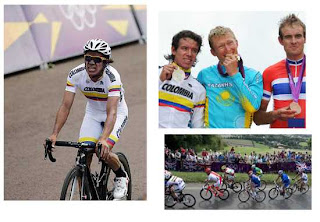WH QUESTIONS
Who ? - ¿Quién? ¿Quienes?
What ? - ¿Qué? ¿Cuál? ¿Cuáles?
When ? - ¿Cuándo?
Where ? - ¿Dónde? ¿Adónde?
Which ? - ¿Qué? ¿Cuál? ¿Cuáles?
Whose ? - ¿De quién? ¿De quiénes?
Why ? - ¿Por qué? ¿Para qué?
How ? - ¿Cómo? ¿Cuán?
can never be answered with yes/no
WHO:
information about a person
example:
who is your father
who is that person whit the hat?
who do you like best ?
tom or jerry?
WHAT:
information about a thing or something general
example:
what is in your bag?
what did you do yesterday?
what are they doing?
WHEN:
information about the time something happens
example:
when is your brother's birthday?
when are you going to finish you work?
when are we going home?
WHERE:
information about a place
Example:
where are you?
where do you work?
where is the front door rey?
WHICH:
choice between a few possibilities
Example:
which book is better, the blue or the red one?
which shirt should i wear?
the pink one the purple one?
which: choice between options
what shirt should i wear?
-> what rind of shirt
what no specific options
WHOSE:
Example :
whose computer is this
whose car is that
whose bike is this ?
it is Peter's bike?
WHY:
Example :
why is he going home?
why do you want to be a singer?
why are you learning english?
HOW:
the way in which something is done
how+other word:
quality or quantity
how was your trip?
how re you?
Example:
 how do you get to london?
how do you get to london?











.jpg)


.jpeg)
